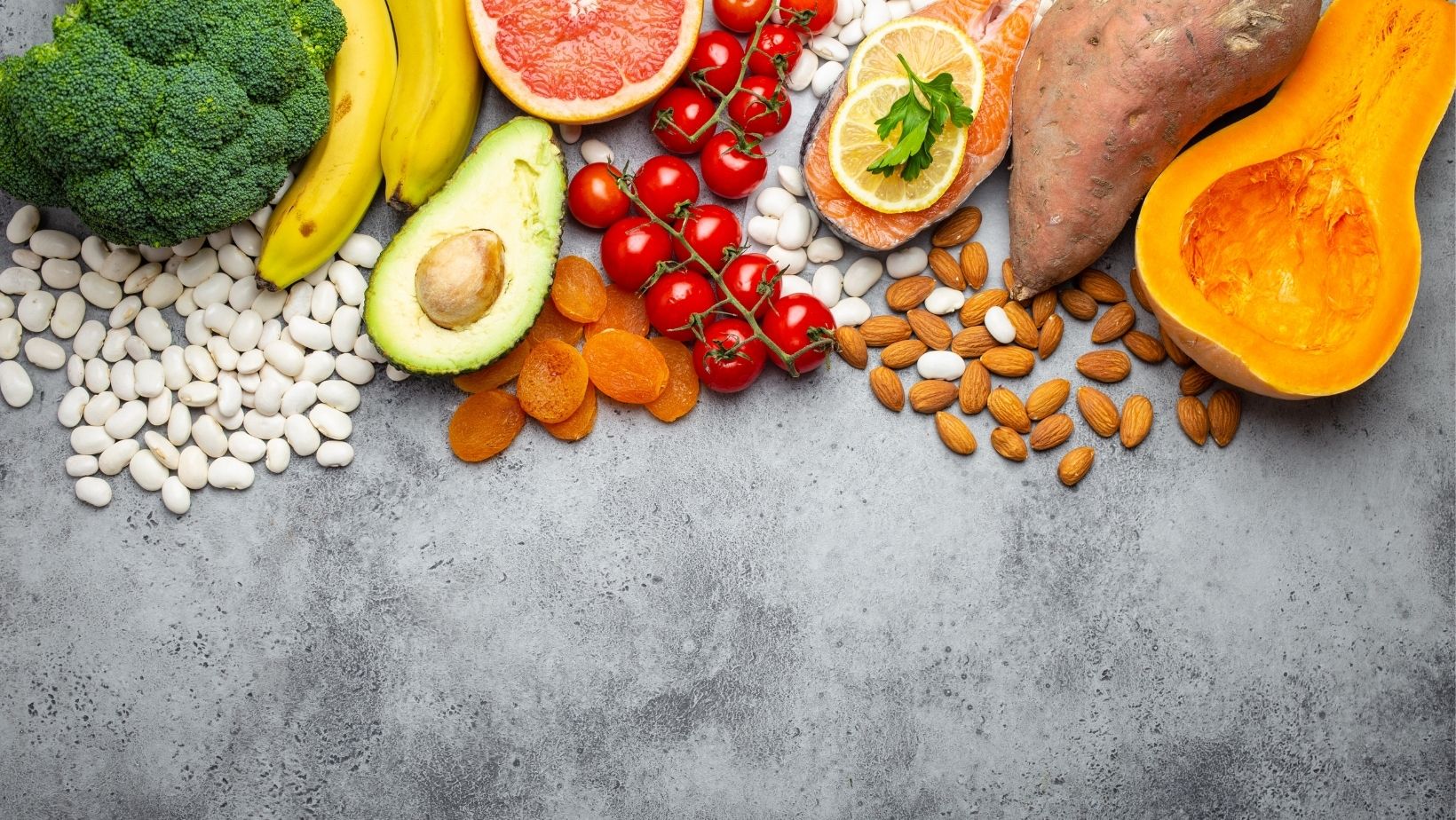Sausage casings and bandages for severe burns are made from it. For thousands of years it has been used to make glue and guitar strings are still made from it. What kind of miracle substance is this? Collagen! In this article we will show you how important this substance is for your body. is and what functions it fulfills.
IT'S WORTH READING!
AT THE END OF THE ARTICLE WE WOULD LIKE TO GIVE YOU A LITTLE JOY WITH A VOUCHER!
Collagen: What is it actually?
Collagen is a solid, insoluble, fibrous protein and one of the main building blocks of bones, skin, muscles, ligaments and tendons. But it is also found in many other parts of the body, including blood vessels, corneas and teeth.
Collagen forms a framework of so-called fibrils, which ensures the strength and elasticity of your skin, for example, but is also essential for blood clotting, for example. In short: it is the substance that holds your body together.
There are at least 16 different types of collagen, of which 80 to 90 percent belong to types I, II, III, and IV. These different types have a different structure and different functions. For example, type I collagen fibrils can be stretched particularly well and are also extremely tear-resistant.
Here is a brief overview of the four main types of collagen for you:
- Type I. This type makes up 90% of the collagen in your body and is made up of tightly packed fibers. It provides the structure of skin, bones, tendons, connective tissue and teeth.
- Type II. This collagen consists of loosely packed fibers and is found in the elastic cartilage that cushions your joints.
- Type III. This type supports the structure of muscles, organs and arteries.
- Type IV. This category helps with filtration and is found in the layers of your skin.
Unfortunately, as we age, our bodies produce less and poorer quality collagen, as a study published in the American Journal of Pathology showed.
In addition, collagen synthesis in women decreases dramatically, especially after menopause. One of the visible signs of this is the skin, which becomes less firm and supple. Cartilage mass also weakens with age.
As clearly described on the Fibroblasts: Cell Culture and Transfection Protocol page, collagen forms a fibrous network of cells (fibroblasts) in the middle layer of the skin, the dermis, on which more and more new cells can grow.
In addition to replacing and restoring dead skin cells, some collagens also serve as a protective covering for delicate organs in the body, such as the kidneys.
If you want to know which foods contain collagen and how you can counteract a loss of the protein, then read on...
Foods containing collagen
Collagen is a component of animal tissue. That is why meat is a good source of this protein. Muscle meat contains mainly type IV collagen, skin contains type I and type III collagen. Bone broth is also very rich in collagen.
To support the synthesis of collagen from various foods, the following nutrients are best suited:
- Vitamin C. Large amounts are found in citrus fruits, peppers, broccoli and strawberries.
- Copper . This element plays a major role in collagen synthesis. Large amounts are found in red meat, sesame seeds, cocoa powder, shellfish, cashews and lentils.
- Vitamin A. Occurs in animal foods and in plant foods as beta-carotene.
- Amino acids. Your body needs high-quality protein, which contains the amino acids needed to make new proteins. Meat, poultry, seafood, dairy, legumes and tofu are all excellent sources.
As mentioned above, collagen production decreases with age. There are also other factors that promote the breakdown of collagen:
- High sugar consumption. A diet rich in sugar increases the so-called glycation rate, a process in which blood sugar attaches itself to proteins. According to a study from 2001, glycation is believed to be involved in various age-related diseases.
- Many chemicals contained in tobacco smoke damage both collagen and elastin in the skin. Nicotine also constricts the blood vessels in the outer layers of the skin, thereby reducing the supply of nutrients and oxygen, as the German Cancer Research Center (DKFZ) in Heidelberg has also found.
- UVA rays. The ultraviolet rays of sunlight cause collagen to break down more quickly because the collagen fibers are damaged, according to an article on the Skin Cancer Foundation website
- Genetic changes. They can affect the extracellular matrix - the tissue between cells where collagen is stored - and lead to mutations or dysfunctions in the collagen produced, according to a study published in the journal Cold Spring Harbor Perspectives in Biology .
Avoiding tobacco and excessive sun exposure, as well as a healthy diet and exercise, can help reduce visible aging and protect collagen. This can help keep skin, bones, muscles and joints healthy for longer. Hydrolyzed collagen supplements may be able to help with this.

Collagen Hydrolysate: A Brief Explanation
The demand for collagen supplements has increased significantly in recent years. To make it easier for the body to absorb collagen, many of the products and supplements on offer are hydrolyzed. This means that the collagen has been broken down
Hydrolyzed collagen contains so-called collagen peptides, which are essential nutrients that are intended to facilitate the formation and regeneration of cartilage tissue. They do this by stimulating the body's cartilage cells to produce more cartilage tissue. This is one reason why they are used, among other things, for the treatment and prevention of cartilage wear.
Legally speaking, collagen hydrolysate is a food product that is often found in dietary supplements. If you are considering taking a collagen-based supplement, it is best to choose one that is grass-fed and does not contain synthetic binders or artificial preservatives.
Now that you've read a bit about collagen, it's time to see what medical benefits collagen might have for the body.
Collagen and medicine - what research says
Potential benefits for skin health
A study published in the journal Skin Pharmacology and Physiology showed that women who were given a supplement containing 2.5 to 5 grams of collagen for 8 weeks showed less skin dryness and an increase in skin elasticity than women in the control group.
Another 2015 study found that women who consumed a collagen-infused drink for 12 weeks had increased skin hydration and a significant reduction in wrinkle depth compared to the control group.
Collagen could support heart health
Collagen provides structure and support to the arteries, the blood vessels that carry blood from the heart to the rest of the body. On the other hand, this means that without collagen, these blood vessels can quickly become brittle and weak.
There is a risk of arteriosclerosis, which can lead to narrowing of the arteries and, in the long term, to strokes and heart attacks.
Collagen could relieve joint pain
Type II collagen helps maintain the function and condition of cartilage and thus prevents pain.
This was also the conclusion reached by a study published in the journal Current Medical Research and Opinion . 73 athletes received 10 grams of collagen daily for 24 weeks. The researchers observed a significant reduction in joint pain at rest and when walking.

Possible prevention of bone loss
Our bones are largely made up of collagen, which helps maintain their strength and structure.
As the amount of collagen in the body decreases due to aging and external influences, bone mass also decreases. This in turn poses the risk of diseases such as osteoporosis, which further reduce bone density and increase the risk of bone fractures, as shown by a study published in the journal Osteoporosis International .
But there is also light on the horizon: For example, a clinical study from 2000 shows that bone loss caused by osteoporosis could possibly be inhibited by collagen-containing dietary supplements.
Collagen and muscle mass
Sarcopenia is a disease characterized by, among other things, the loss of muscle mass in old age. According to a study published in the British Journal of Nutrition, collagen-containing supplements could counteract this.

Conclusion: Collagen is the most important building block of the body
Collagen is a protein that is considered the main component of many important components of the body, such as bones, muscles, blood vessels or skin.
However, the normal aging process and external factors such as smoking or poor diet cause a decline in collagen levels in the body. This can lead to various symptoms and diseases, such as prematurely aged skin or even arteriosclerosis.
As a rule, you get enough collagen or the substances needed for collagen production in the body through a healthy and balanced diet. However, if supplementation is indicated, you should use high-quality nutritional supplements that have been tested for quality and are free of harmful substances.
AS PROMISED, YOU WILL RECEIVE A 10% VOUCHER ON OUR COLLAGEN .
SIMPLY COPY THE CODE KOLLAGEN+V10 AND ENTER IT AT CHECKOUT.
Click here to shop
[1] https://www.ncbi.nlm.nih.gov/books/NBK21582/
[2] http://web.mit.edu/mbuehler/www/research/Collagen/summary_PNAS_Aug15.pdf
[3] https://www.ncbi.nlm.nih.gov/pmc/articles/PMC1606623/
[4] https://journals.biologists.com/jcs/article/123/24/4195/31378/The-extracellular-matrix-at-a-glance
[5] http://www.fibroblast.org/
[6] https://pubmed.ncbi.nlm.nih.gov/29144022/
[7] https://pubmed.ncbi.nlm.nih.gov/6110524/
[8] https://pubmed.ncbi.nlm.nih.gov/11237208/
[9] https://www.mayoclinic.org/healthy-lifestyle/quit-smoking/expert-answers/smoking/faq-20058153
[10] https://www.skincancer.org/blog/photoaging-what-you-need-to-know/
[11] https://www.ncbi.nlm.nih.gov/pmc/articles/PMC3003457/
[12] https://pubmed.ncbi.nlm.nih.gov/23949208/
[13] https://www.jmnn.org/article.asp?issn=2278-1870;year=2015;volume=4;issue=1;spage=47;epage=53;aulast=Borumand
[14] https://www.ncbi.nlm.nih.gov/pubmedhealth/PMH0062943/
[15] https://pubmed.ncbi.nlm.nih.gov/18416885/
[16] https://pubmed.ncbi.nlm.nih.gov/22486722/
[17] https://www.ncbi.nlm.nih.gov/pmc/articles/PMC4594048/
[18] https://pubmed.ncbi.nlm.nih.gov/16341622/
[19] https://pubmed.ncbi.nlm.nih.gov/16341622/
[20] https://pubmed.ncbi.nlm.nih.gov/11071580/

















